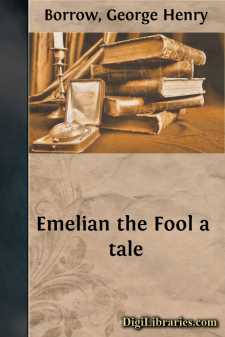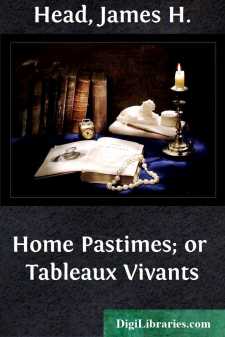Non-Classifiable
- Non-Classifiable 1768
Non-Classifiable Books
Sort by:
EMELIAN THE FOOL In a certain village there lived a mujik, or yeoman, who had three sons; two were clever, but the third was a fool, who was called Emelian. When the good man had reached an extreme old age, he called all his sons to him, and said: “Dear children, I feel that I have not long to live; I therefore leave you house and cattle, which you will divide in equal portions. I also leave you...
more...
The growing interest in the popular tales of Europe has led me to believe that a selection from those of Italy would be entertaining to the general reader, and valuable to the student of comparative folk-lore. The stories which, with but few exceptions, are here presented for the first time to the English reader, have been translated from recent Italian collections, and are given exactly as they were...
more...
PREFACE In 1590 a.d. the HÃ
ÂjÃ
 were overthrown at Odawara by the TaikÃ
 Hidéyoshi, and the provinces once under their sway were intrusted to his second in command, Tokugawa Iyeyasu. This latter, on removing to the castle of Chiyoda near Edo, at first paid main attention to strengthening his position in the military sense. From his fief in TÃ
ÂtÃ
Âmi and Suruga he had...
more...
INTRODUCTION. Dr. Corbett, Bishop of Oxford and Norwich, lamented long ago the departure of the English fairies. "In Queen Mary's time" he wrote—"When Tom came home from labour,Or Cis to milking rose,Then merrily, merrily went their tabor,And merrily went their toes." But now, in the times of James, they had all gone, for "they were of the old profession," and "their...
more...
by:
N. D'Anvers
CHAPTER I Long, long ago there lived far away in India a woodcutter called Subha Datta and his family, who were all very happy together. The father went every day to the forest near his home to get supplies of wood, which he sold to his neighbours, earning by that means quite enough to give his wife and children all that they needed. Sometimes he took his three boys with him, and now and then, as a...
more...
I THE WIDOW HO One day in the early dawn, a distinguished mandarin was leaving the temple of the City God. It was his duty to visit this temple on the first and fifteenth of the moon, whilst the city was still asleep, to offer incense and adoration to the stern-looking figure enshrined within. This mandarin was Shih-Kung, and a juster or more upright official did not exist in all the fair provinces of...
more...
PROLOGUE [AFRICA AND HER SISTERS.] Some fifteen years now I have been her guest,For all this land's hers, tho' she does not reign.She's but a ward, at what late age she'll gainHer freedom and her kingdom, it were bestTo risk no surmise rash. E'en now she's drestSometimes in skins. Give her ground-nuts and grain,Cattle and thatch'd hut, then she'll not...
more...
by:
James H. Head
INTRODUCTION. The Tableaux Vivants may be new to many of our readers, although they have been produced and have been quite popular in Europe, and to some extent in this country. For public or private entertainment, there is nothing which is so interesting and instructive as the tableau. The person most fitted to take charge of a tableau-company is one who is expert at drawing and painting: any one who...
more...
by:
Jacob Abbott
Getting a Passport. The last day that Rollo spent in Paris, before he set out on his journey into Switzerland, he had an opportunity to acquire, by actual experience, some knowledge of the nature of the passport system. Before commencing the narrative of the adventures which he met with, it is necessary to premise that no person can travel among the different states and kingdoms on the continent of...
more...
Chapter I The History of Syphilis Syphilis has a remarkable history, about which it is worth while to say a few words. Many people think of the disease as at least as old as the Bible, and as having been one of the conditions included under the old idea of leprosy. Our growing knowledge of medical history, however, and the finding of new records of the disease, have shown this view to be in all...
more...











